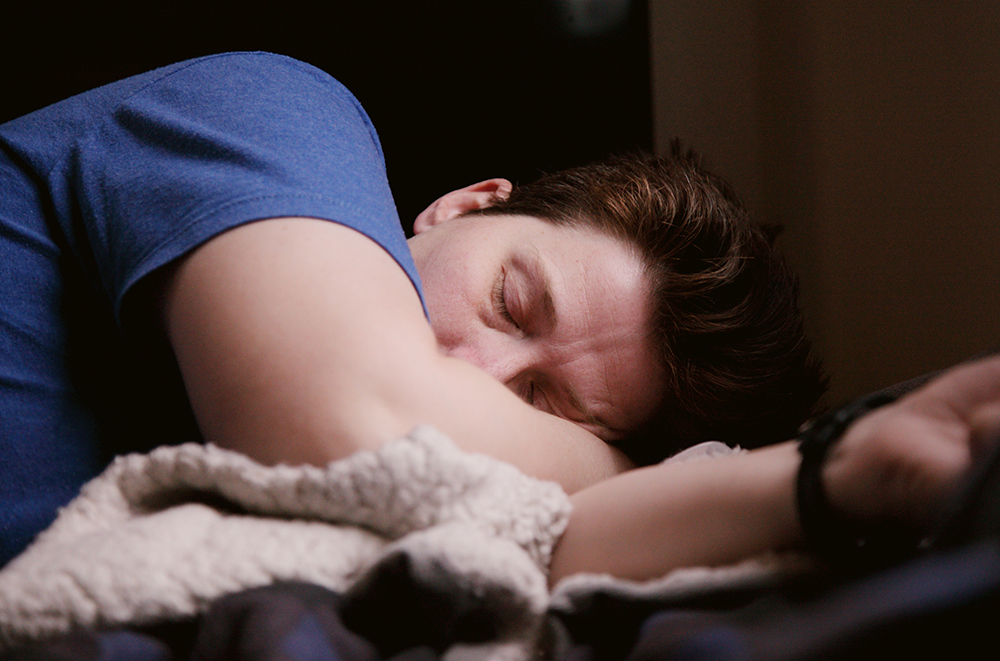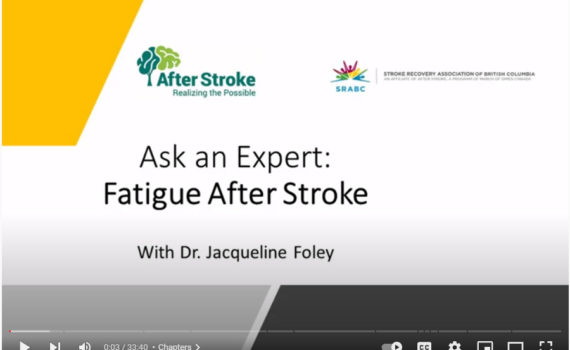
Everyone can feel overtired from time-to-time. But for those who are experiencing post-stroke fatigue, it’s more than just being tired. Below, we share more on what it is, provide resources to help and learn from one of our service users on how she manages it from day-to-day.
Post-stroke fatigue is commonly reported, with estimated rates between 38 and 73 per cent of those who are recovering from a stroke, according to a 2017 Stroke Report by Heart & Stroke. You may feel as if you have no energy most – if not all – of the time. And even after resting or getting a full night’s sleep, the fatigue will still be there.
It’s been shown to impact a person’s mood, and ability to take part in stroke rehabilitation or everyday activities. The fatigue may be short-lived or last for months or even years.
There is no doubt that it can be challenging to manage. However, there are strategies that may help. You’ll find a few resources below that you can use to get started:
• Ask An Expert Series: Fatigue After Stroke
– learn ways to manage post-stroke fatigue while replenishing your “energy bank”
• Fatigue After Stroke | Stroke Association UK
– fact sheet produced by the Stroke Association, United Kingdom
• Low energy | Heart and Stroke Foundation
– find more suggestions on how to manage post-stroke fatigue from Heart & Stroke
Looking for more resources? One of our After Stroke Coordinators can work with you to identify resources to help you and your family navigate the path forward after a stroke. Contact us today.
Living with post-stroke fatigue:
A firsthand account from a March of Dimes Canada service user
“I never get a break,” says Nancy. “It affects me 24-7.”
She is talking about post-stroke fatigue, a commonly reported symptom after a stroke. Nancy describes herself as a ‘go-getter’ before her stroke in 2021 – someone who rarely got tired even when things became busy.
Nancy shares that it’s different from any type of fatigue or tiredness that she experienced before her stroke, and it affects her physically as well as mentally. “I feel like I just ran a marathon all the time,” says Nancy. “I’m always out of breath, and I feel like lead is constantly travelling through my veins…simply no energy. The amount of sleep doesn’t make a difference.”
The fatigue can make it a struggle to keep her eyes open during conversations. Her emotions can run high and sometimes she doesn’t eat well, as she is too tired to get up and get herself something to eat.
Weekly contact with others through After Stroke’s Community Conversation Group has helped.
“It’s always great to connect with people who have had the same issue happen,” says Nancy. “It’s important to connect with people who know what your fatigue is like.”
Nancy is also excited to be back at work and worked with an occupational therapist on techniques to manage her fatigue, including energy conservation. This means adapting everyday activities to use less energy, and balancing periods of rest and activity from morning until night.
Nancy continues to make progress. Recently, she has found that while she previously needed to nap every day, though never a napper before, now she can rest without sleeping. The rest still makes a big difference.
“I kind of get a second wind,” says Nancy. “I can get up and wash dishes and some other stuff – I’m not done for the day.”




